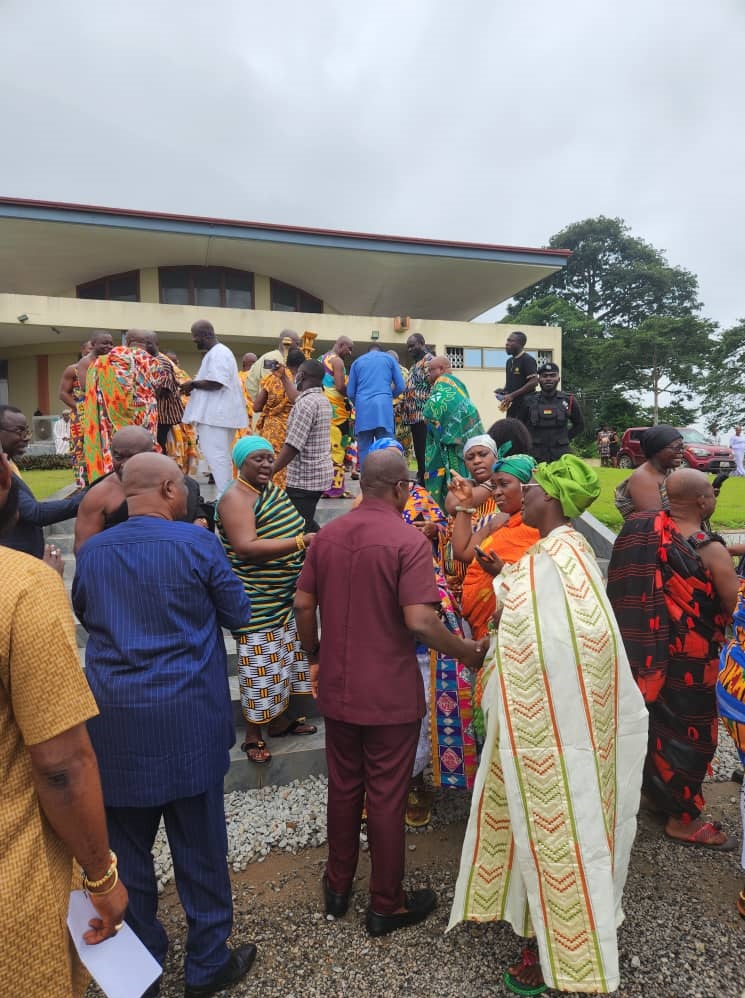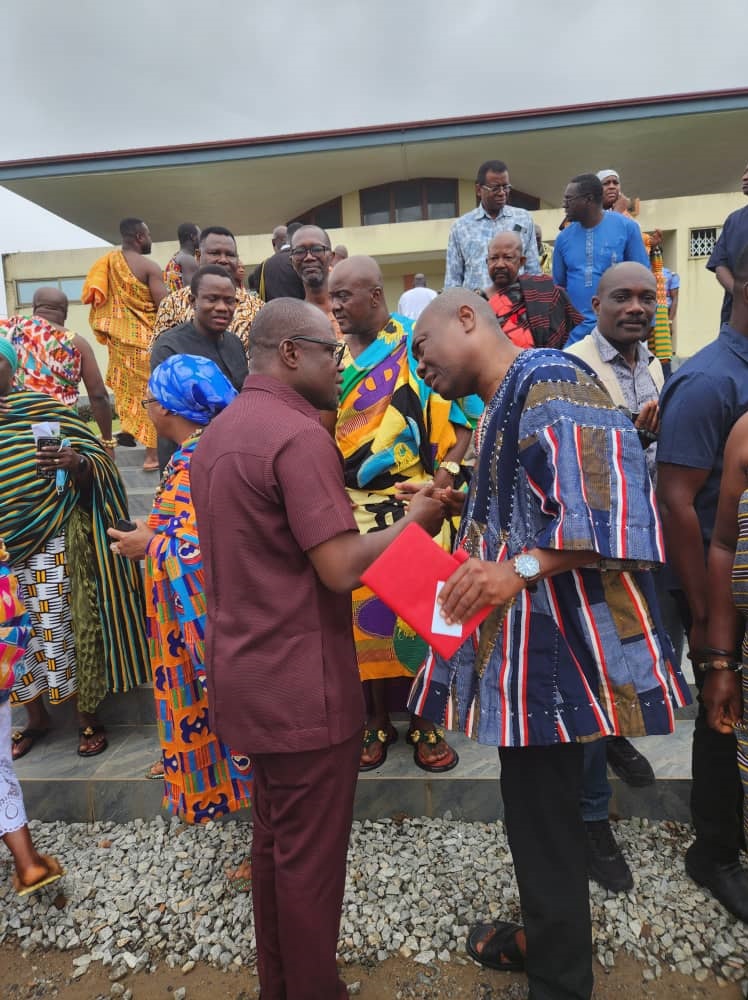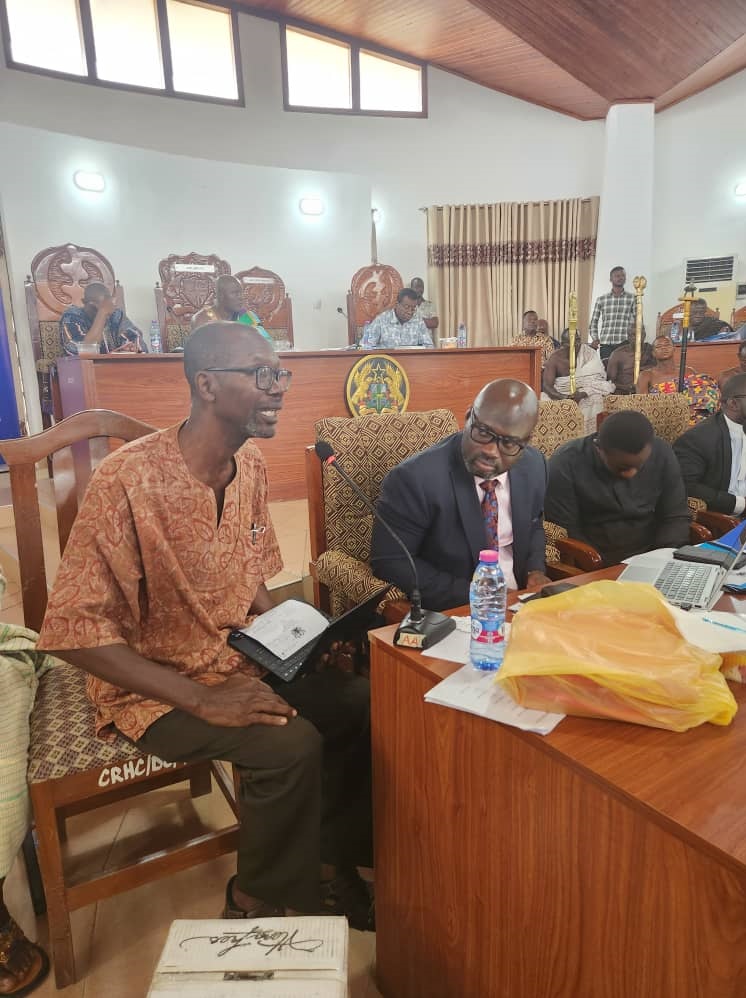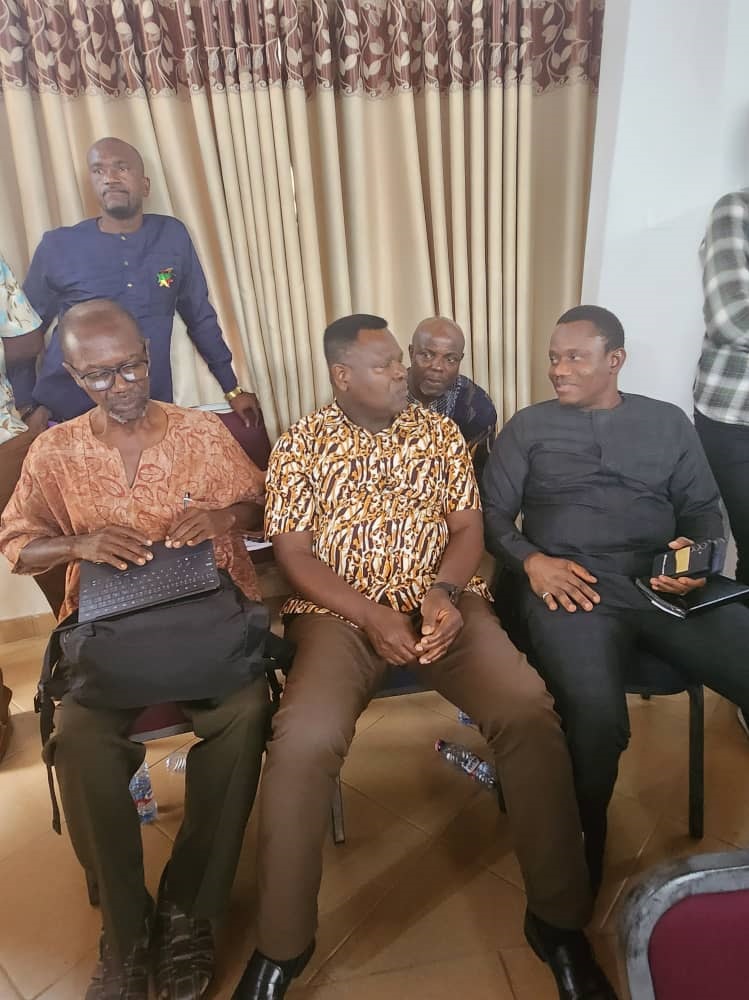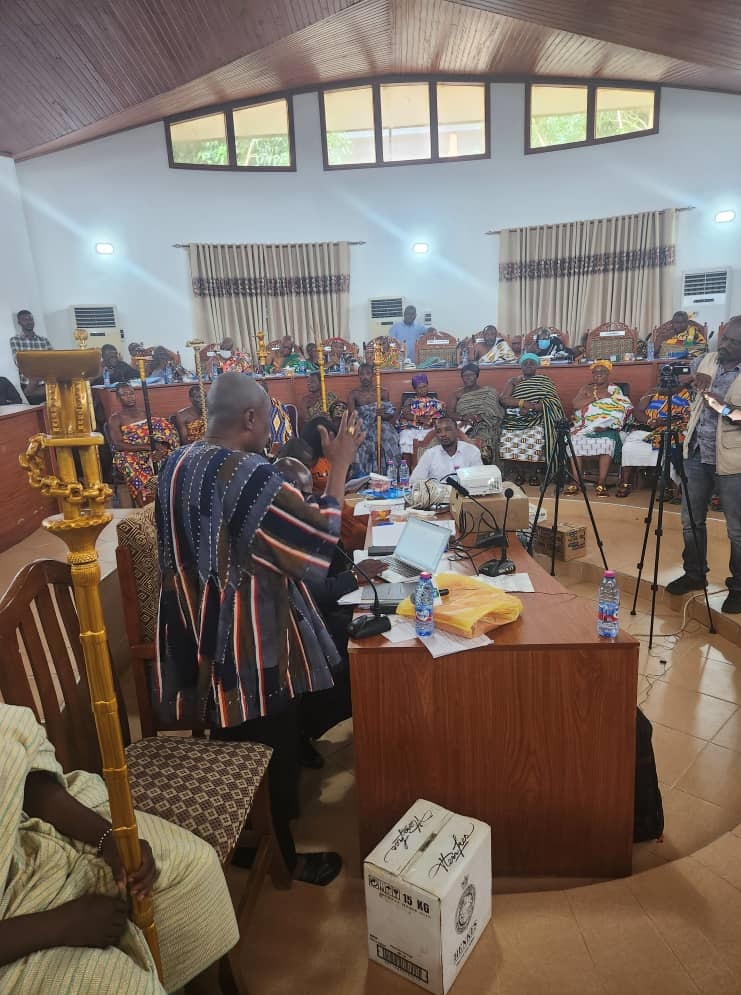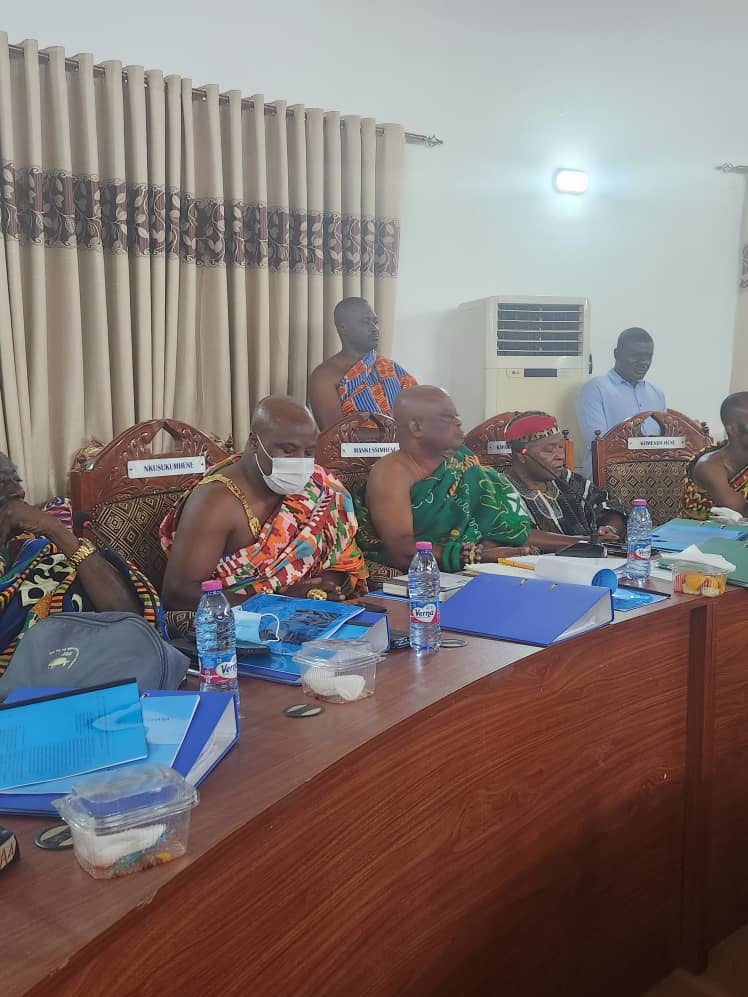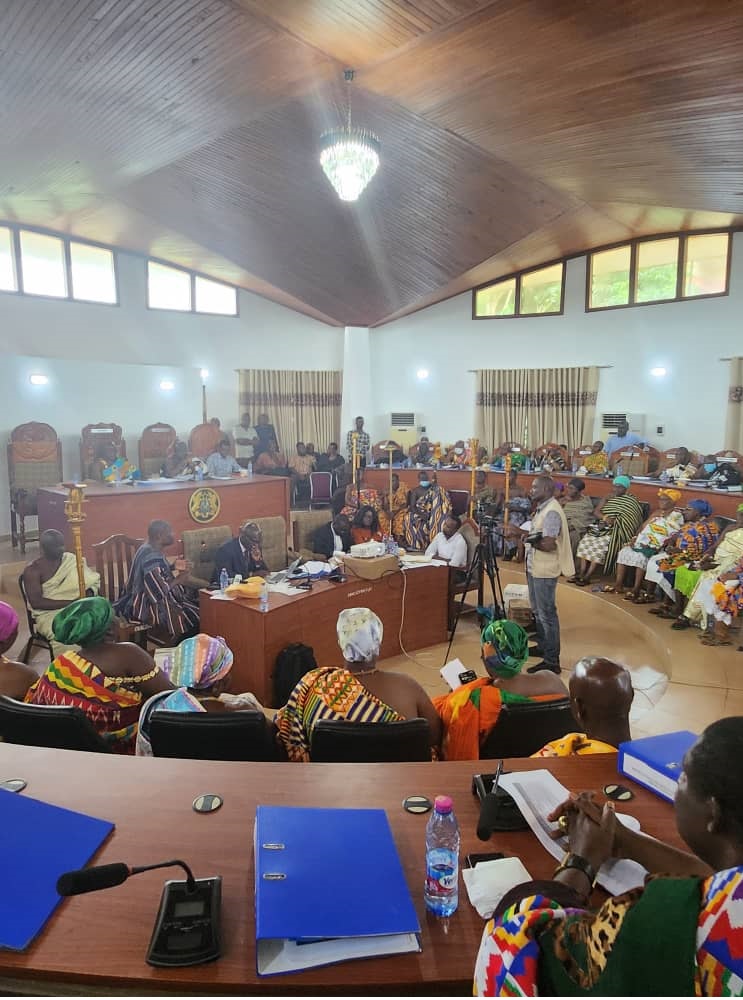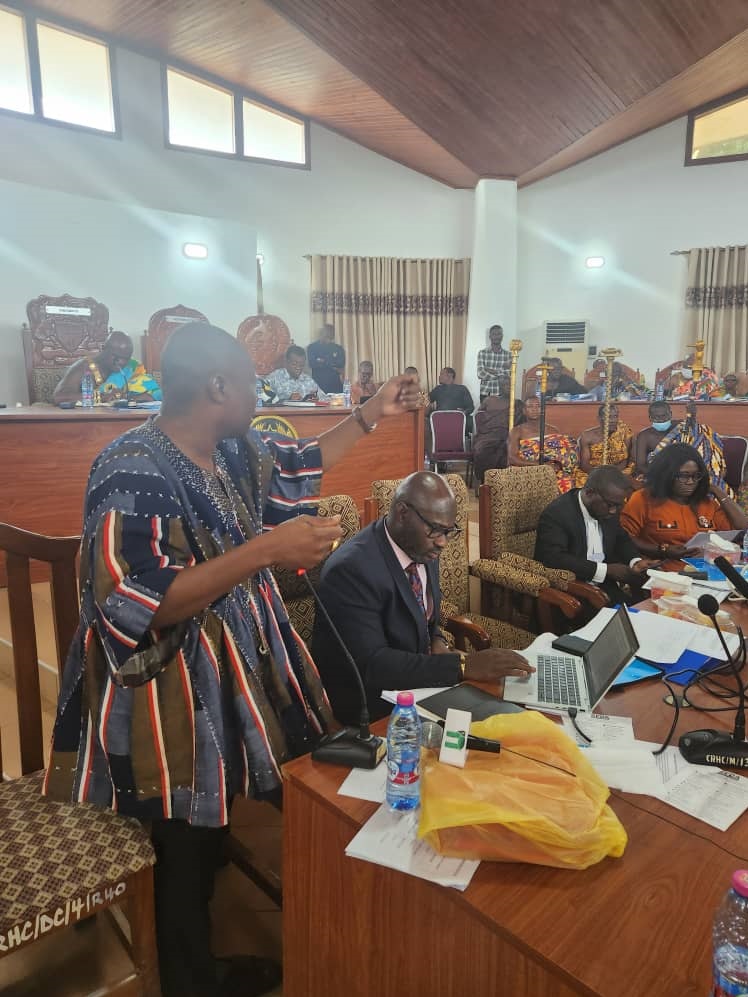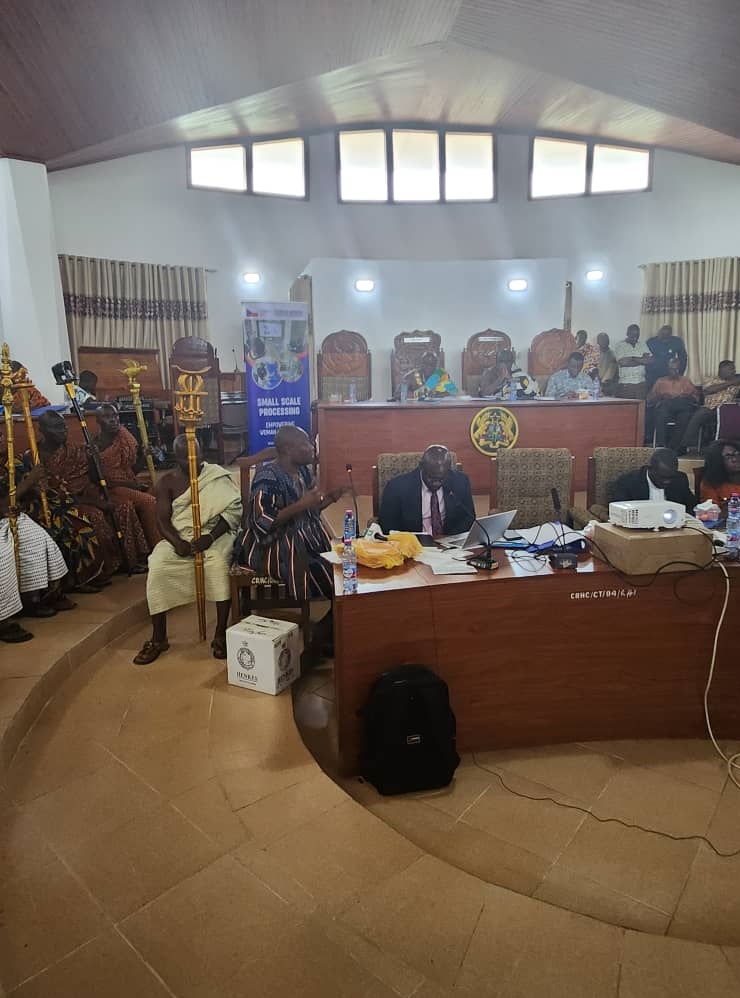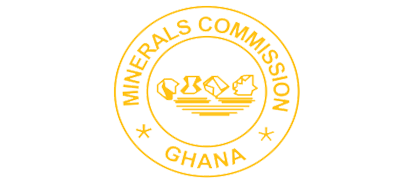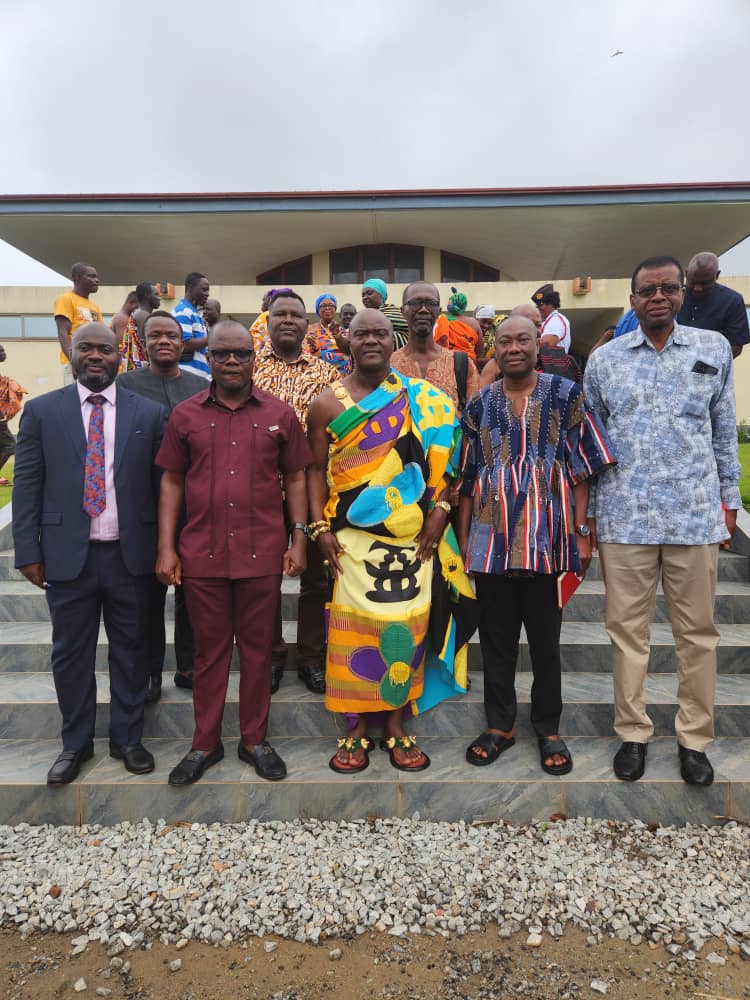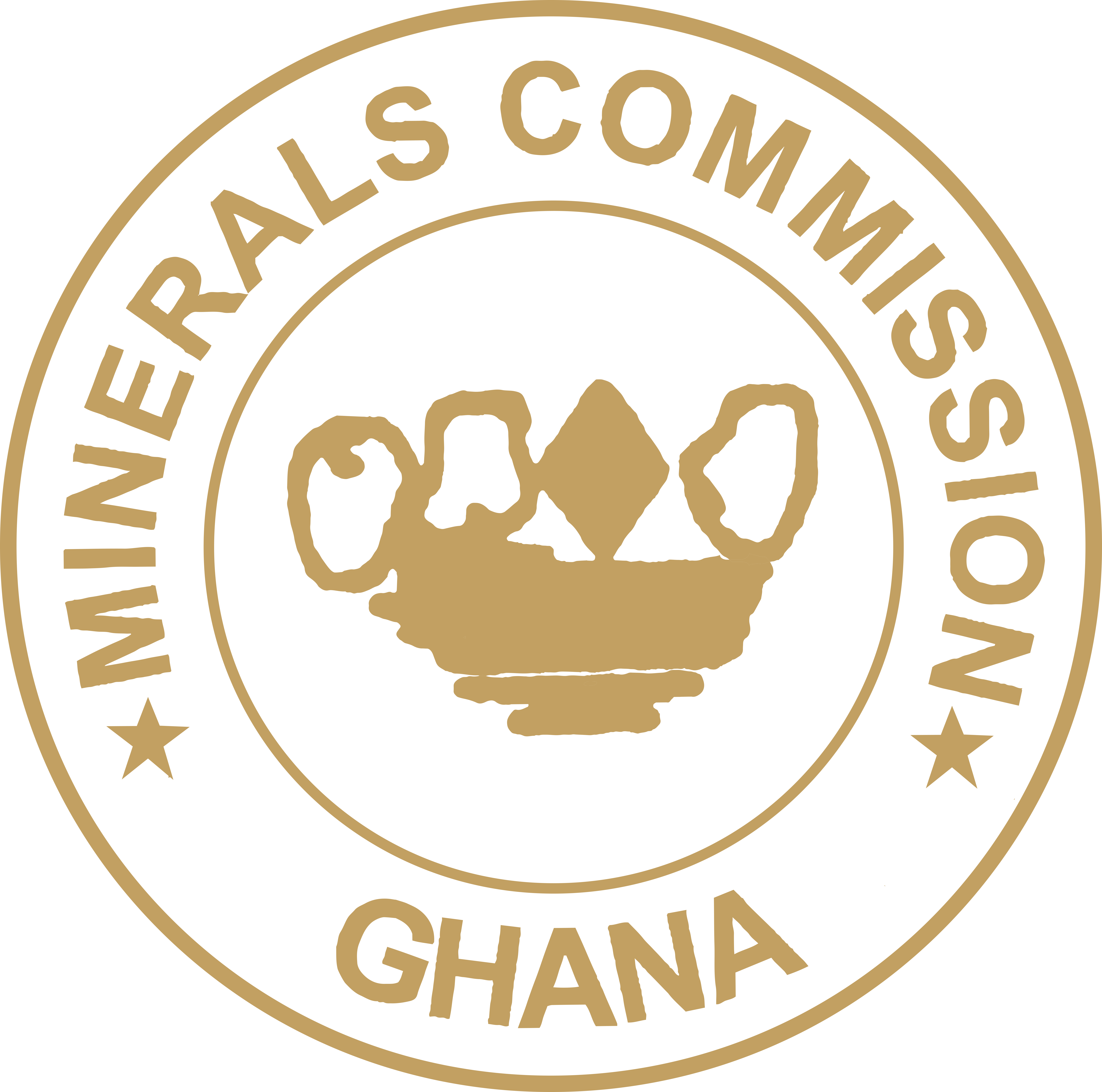Minerals Commission Consults Central Regional House of Chiefs on Draft Amendments to Mining Policy and Legal Framework
Cape Coast, July 9, 2025 — The Minerals Commission of Ghana has initiated a comprehensive review and update of the country’s 2014 Mining Policy and legal framework, aiming to modernize the sector and align it with sustainable development goals. As part of the ongoing stakeholder engagement process, a high-level delegation led by the Chief Executive Officer of the Minerals Commission, Mr. Martin Kwaku Ayisi (Esq), and Prof. Jerry Samuel Yaw Kuma, Advisor to the Minister of Lands and Natural Resources, met with the Central Regional House of Chiefs on July 9, 2025, to discuss the proposed amendments.
In his welcome address, Odeefuo Amoakwa Buadu VIII, President of the Central Regional House of Chiefs and Omanhene of the Breman Traditional Area, thanked the delegation for engaging with and educating the House on the mining policy and legal amendments. He stated that such consultations cannot be overemphasized and urged Nananom to contribute their inputs to enhance the work of the policy review committee.
So far, the review committee has held consultations with key stakeholders such as the Ghana Chamber of Mines, civil society organizations, academia, and research institutions. The overarching goal is to ensure that the benefits of mining are equitably distributed while promoting environmental sustainability and social responsibility.
Mr. Benjamin Aryee, former CEO of the Minerals Commission and former Advisor to the Minister, presented the review of the 2014 Mining Policy. He highlighted new provisions, including the Green/Critical Minerals Policy, emerging global trends like climate change, and Environment, Social, and Governance (ESG) standards, as well as government policies such as the introduction of Cooperative Mining and the recategorization of mining, with the creation of a medium-scale category. Mr. Aryee reiterated some of the challenges facing the mining sector and outlined strategic recommendations based on the draft policy, as follows:
- Centralized Gold Trading – The establishment of a centralized gold trading institution, such as a Gold Board, to enhance transparency and accountability in the gold value chain.
- Decentralization of the Minerals Commission – A strategic move to bring services closer to mining communities and improve support for small-scale miners.
- Deepening Community Relations and Engagement – The need to foster social harmony and reduce conflicts between mining companies and host communities.
- Local Content and Local Participation Development – Ensuring that local communities and businesses benefit meaningfully from mining operations.
- Health and Safety – Enhancing occupational health and safety standards and eliminating child labor in mining.
- Fiscal Transparency – Reforming fiscal policies to ensure fair revenue distribution and improved financial governance.
The Manager of Legal, Mr. Josef Iroko, discussed the current state of the mining laws and regulations, as well as administrative and regulatory guidelines. He spoke about the importance of Parliamentary ratification of mining leases and the rights and responsibilities of District Mining Committees in overseeing mining activities within their jurisdictions. Mr. Iroko highlighted the critical role of Chiefs and traditional leaders as allodial owners of the land and their entitlement to compensation as per Ghana’s mining laws.
Mr. Ayisi provided an overview of the Minerals and Mining Law, Act 2006 (Act 703), and outlined significant amendments to Ghana’s mining laws. He explained that the proposed Community Development Agreement (CDA), which seeks to allocates 1% of mining companies’ revenue, would help improve community development in an equitable manner. The CEO announced the introduction of a medium-scale category, a new classification to bridge the gap between small-scale and large-scale mining operations. He further noted that there would be a need to review and renegotiate existing mining contracts to ensure fairness and alignment with national interests.
Mr. Ayisi emphasized that the updated policy and legal framework would serve as a foundation for a more inclusive, transparent, and sustainable mining sector. He informed the House that after a mining lease or license is issued, the mineral right holder must obtain an Environmental Permit from the Environmental Protection Authority and an Operating Permit from the Chief Inspector of Mines at the Commission before commencing any mining activity. The CEO urged the Chiefs to verify any documents submitted by prospective mineral rights holders with the Commission’s offices. He also explained that there was a proposal to limit prospecting licenses to a maximum of nine years and cap mining leases at fifteen years.
During the discussion session, the House of Chiefs recommended that all Mining Concession Notices should be served on the Traditional Council, represented by the President of the House, the Paramountcy, and the local Chief of the designated area. They inquired about the difference between prospecting and reconnaissance mining and raised concerns about illegal sand-winning activities in the Region. Mr. Ayisi clarified that salt is a mineral regulated under the mining law and assured the House that a comprehensive plan would be developed to further engage communities involved in salt mining.
The CEO also encouraged the House of Chiefs to review the amendments and submit their proposals within two weeks for consideration by the Review Committee. He concluded by stressing that as Ghana positions itself as a leader in responsible mineral resource management, the proposed reforms are expected to significantly enhance the sector’s contribution to national development.
In response, Odeefuo Amoakwa Buadu VIII commended the CEO of the Commission and his delegation for their commitment to transforming the mining sector through this consultative process and pledged their full support to achieving this noble vision.
Also present at the gathering were Hon. Eduamoah Ekow Panyin Okyere, Central Regional Minister, Mr. Nelson Ahedor, Director of Small Scale and Industrial Minerals, and Dr. Ahmed Tijani, Manager of Corporate Affairs and Information Technology of the Minerals Commission.
